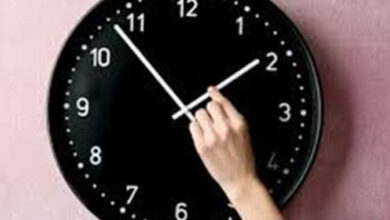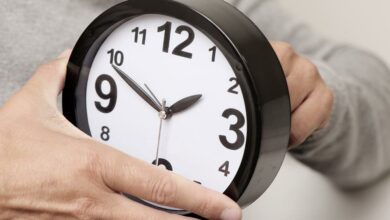Starting Tuesday 10 August at midnight, Egypt is implementing winter time, setting the clock one hour back in order to ease fasting for Muslims this Ramadan, which this year falls during the hottest month of the year.
Law NO. 141 of 1988 permits changing the clock to winter time if Ramadan coincides with the period of Daylight Saving Time (DST).
However, after the end of the Holy month, DST will be resumed. And then, Egyptians will move back to winter time, at midnight on 30 September, 2010.
This is the first time for Egypt to resume a DST schedule after moving on to winter time for Ramadan.
Al-Masry Al-Youm hit to the streets to find out what Egyptians think of the decision on moving the clocks.
Mohamed Abbas, baker: "Moving the clock one hour back in Ramadan is a rational decision. Fasting this year will be very difficult due to the very hot weather during Ramadan. Not only the weather, but also overcrowded streets and difficulty of transportation during this month add to citizens' tiredness. So, the decision makes a real difference."
Norhan Saad, banker: "I agree on changing the clock but it is an incomplete decision. It is illogical to end DST on 10 August and revert back after Ramadan–and then to end DST again, after less than one month. This is very confusing. If the government wants to end DST this year earlier than usual because of Ramadan, it should stick to winter time afterward."
Ahmed Afkhary, engineer: "The new decision is in vain. There is no country other than Egypt that sets the clock randomly every year. I used to live in the Netherlands where fasting is from 7 AM till 10 PM. But no one complains or refrains from fasting due to the long hours. Even Arab countries, where the weather is hotter than here, do not follow this pattern."
Diaa Mohamed, employee: "For the first time, the government has taken a rational decision for the benefit of the poor citizens. Neither our houses nor our offices are equipped with air conditions, which makes fasting from dawn until 8 PM difficult. People will fast anyway, but ending Daylight Saving Time will help to lift some of the daily burdens they are facing."
Nahla Waleed, housewife: "I am totally against this decision. Muslims have to bear fasting for the sake of God even if Ramadan coincides with the DST period. This is trickery. We are not supposed to change the surrounding circumstances in order to fast."
Farid Azzam, physician: "I think there is no need to change the clock. Many Muslims already fast Mondays and Thursdays throughout the year in addition to other religious occasions. It is therefore not that difficult for Muslims to endure fasting during summertime. It's merely about being used to it."


